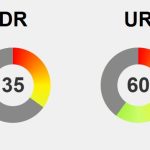Finding the perfect business accountant can be a game-changer for your company’s financial trajectory—are you overlooking critical factors that could make or break your success? A skilled accountant offers more than compliance; they become a strategic partner, helping you understand your finances, manage cash flow, and identify growth opportunities. Their credentials, industry experience, and communication style matter immensely, shaping a relationship built on trust and mutual understanding. But how do you select the right fit amid countless options? This guide reveals essential traits to seek: reliability, proactivity, professionalism, and a genuine investment in your goals. Establishing clear expectations, routine communication, and a collaborative approach turn an accountant from a mere number cruncher into a trusted advisor. With the right partnership, you can navigate challenges confidently, seize emerging opportunities, and build a resilient foundation for long-term success—making a strategic choice today that could transform your financial future.
Choose a Trusted Partner to Transform Your Business Future
Choosing the right business accountant can be a game-changer for your company’s future. Far from being just someone who handles your taxes, a good accountant becomes a trusted partner in your growth. They help you understand your financial health, manage cash flow effectively, and stay compliant with ever-changing regulations—crucial tasks in today’s competitive landscape. When you find someone who fits your needs, they can offer strategic advice that guides smarter decisions and supports long-term stability.
Building a strong financial partnership goes beyond basic bookkeeping. It’s about establishing trust and open communication so that your accountant truly understands your goals and challenges. An experienced professional who knows your industry’s nuances can identify opportunities for expansion or cost savings that you might overlook on your own. This relationship forms the backbone of resilience, helping your business adapt to economic shifts and unforeseen setbacks.
Credentials and industry experience matter. Certifications like CPA or CA reflect a rigorous background and ongoing education, giving you confidence in their expertise. Equally important is their familiarity with your sector—whether retail, tech, or services—so they can provide advice tailored to your specific challenges and opportunities. This specialized knowledge ensures that their guidance is relevant and actionable, rather than generic.
Effective communication is essential. You want an accountant who explains complex financial concepts in clear language and listens carefully to your aspirations. When communication flows smoothly, collaboration becomes easier, especially during stressful moments or major decisions. Transparency about fees and scope further builds trust, letting you focus on growing your business without unnecessary worries.
Choosing the right accountant isn’t just a transactional decision; it’s a strategic move. A dependable partner who aligns with your values and understands your vision can help you navigate challenges, seize opportunities, and lay a solid foundation for future success.
Build a Foundation of Trust and Clarity in Financial Partnerships
A strong financial partnership is the backbone of a thriving business. When you work with an accountant who truly understands your industry and shares your goals, it creates a foundation rooted in trust and clarity. This relationship isn’t just about accurate bookkeeping; it’s about developing a collaborative approach where strategic advice and proactive planning become part of your daily operations. Such a partnership helps you navigate market fluctuations, optimize processes, and make smarter decisions that support sustainable growth.
Choosing the right accountant begins with verifying their credentials. Certifications like CPA or CA signal rigorous training and a commitment to ongoing professional development. These qualifications give you confidence in their expertise and integrity. Experience matters too—an accountant familiar with your sector understands the specific financial challenges you face, whether it’s managing inventory, handling funding structures, or tax planning for your industry. Their tailored insights can make a real difference in your bottom line.
Clear communication is essential. You want an accountant who explains complex concepts in plain language and listens carefully to your business ambitions. When dialogue flows smoothly, collaboration becomes more effective, especially during stressful times or major decisions. Transparency about fees and scope further strengthens trust, allowing you to focus on growing your business without worrying about hidden costs or misunderstandings.
Building a relationship based on trust and mutual understanding isn’t just about compliance; it’s about creating a strategic partnership that supports your vision. An accountant who shares your values and understands your long-term goals becomes a vital asset. This solid foundation of trust and clarity enables you to respond confidently to challenges and seize opportunities, setting the stage for lasting success.
Identify the Traits of a Reliable and Strategic Business Accountant
A trusted business accountant stands out through their reliability and integrity. They consistently deliver accurate financial insights and meet deadlines without fuss, which builds trust and makes it easier for you to rely on their guidance during critical decisions. When an accountant is dependable, you can count on them to always have your best interests in mind, even if their advice isn’t the easiest to hear. Their honesty and transparency lay a strong foundation for a long-term partnership.
Proactivity is another key trait. A great accountant doesn’t wait for problems to arise; they anticipate issues early by reviewing your financial data regularly. This proactive approach allows them to spot potential challenges before they become costly, offering solutions that keep your business on track. Staying informed about changing tax laws and regulations ensures you remain compliant and capitalize on new opportunities.
Understanding your business goals is essential. An effective accountant takes the time to learn what you want to achieve—whether it’s scaling up, expanding into new markets, or improving cash flow—and tailors their advice accordingly. This alignment transforms them into a true strategic partner invested in your success, rather than just a number cruncher.
Clear communication is vital. An accountant who explains complex financial concepts in straightforward language and listens carefully to your concerns fosters collaboration. When you feel heard and understood, making decisions becomes easier, and trust deepens. Transparency about fees and scope further solidifies this relationship, ensuring expectations are set from the start.
Professionalism and ethics form the backbone of reliability. Confidentiality, honesty, and adherence to high standards reassure you that sensitive information is secure. When your accountant handles your data with care and integrity, it reinforces your confidence in their support and advice.
Finally, staying current with industry standards and ongoing professional development keeps your accountant’s advice relevant and effective. Their commitment to learning ensures they can navigate evolving regulations and best practices, helping your business stay resilient and competitive. A dependable accountant acts as a true partner—invested, proactive, and aligned with your vision for growth.
For those seeking to find such a trusted partner, exploring resources like the Guide to Choosing a Business Accountant can provide valuable insights. This resource offers tips on what to look for in a reliable and strategic accountant, helping you make informed decisions when selecting someone to support your financial growth and stability.
Find and Evaluate Candidates to Secure Your Financial Ally
Finding the right business accountant starts with understanding exactly what your company needs. Whether you’re looking for basic bookkeeping, tax planning, or strategic advice for growth, clarifying these priorities helps narrow your options. Focus on professionals experienced in your industry or with similar business models, as they’ll better grasp your unique challenges and opportunities.
Credentials like CPA or CA are key indicators of professionalism. Verify these qualifications and ask for references from past clients. Speaking directly with references offers insight into their reliability, responsiveness, and how well they supported similar businesses. This step helps you determine if they’re dependable enough to become a trusted partner.
Pay attention to communication style. An effective accountant explains complex concepts in simple language and actively listens to your goals. If they seem dismissive or use jargon, that’s a red flag. Compatibility in how you communicate fosters smoother collaboration, especially during stressful times or big decisions. Also, check if they’re familiar with your accounting software to ensure seamless integration.
Set clear expectations early. Discuss scope, fees, and turnaround times upfront to prevent misunderstandings later. Transparency about responsibilities and costs builds trust and aligns your partnership. Remember, this isn’t just about finding someone to handle your books—it’s about partnering with someone committed to your business’s success.
Narrowing down your options involves more than credentials. Look for professionals genuinely interested in your growth and offering tailored advice. Their proactive engagement signals they’re invested in your long-term success, not just compliance.
Schedule a meeting with promising candidates to gauge fit. Trust your instincts—are they attentive, clear, and aligned with your vision? A good match goes beyond skills; it’s about chemistry and shared commitment. The right accountant will become a vital part of your team, helping you navigate financial challenges and seize opportunities as your business evolves.
Leverage Your Accountant’s Expertise for Long-Term Business Growth
A strong relationship with your accountant can unlock long-term value that goes well beyond basic compliance. When you leverage their expertise effectively, they become more than just number crunchers—they turn into strategic partners who help shape your business’s future. Their insights can reveal new growth opportunities, whether it’s expanding into untapped markets, launching innovative products, or streamlining operations to boost profitability.
Regular collaboration keeps you ahead of potential challenges and ensures you’re capitalizing on emerging trends. Your accountant’s forecasts and cash flow projections transform routine financial data into actionable plans for scaling. By reviewing these regularly, you can make smarter decisions about investments, staffing, and resource allocation without risking overextension.
Viewing your accountant as a long-term growth ally shifts the focus from just meeting deadlines to actively building your business. Their advice on budgeting, cost management, and strategic deployment of resources can significantly improve profitability over time. The upfront investment in a skilled professional pays dividends through a stronger financial footing and increased resilience.
An accountant’s support extends to developing disciplined financial habits, setting clear goals, and tracking progress. This proactive approach helps keep your business adaptable, enabling quick responses to market shifts or disruptions. Their guidance minimizes costly mistakes and maximizes opportunities, giving you confidence to take bold steps.
Funding becomes easier when your accountant prepares tailored financial documents and forecasts to support expansion plans. Whether seeking loans or investor backing, their expertise improves your chances of securing capital while maintaining healthy cash flow. Their strategic insights can influence key decisions about business structure, tax planning, and exit strategies, ensuring your financial foundation evolves with your ambitions.
Building this kind of partnership requires ongoing communication and mutual trust. When both sides are committed, your accountant’s insights become deeply integrated into your daily operations and long-term strategy. This collaboration transforms routine financial management into a powerful engine for sustained growth and competitive advantage.
Plan Your Next Steps for Effective Collaboration and Success
Once you’ve chosen the right accountant, the next step is to establish a clear plan for working together. Start by defining your immediate priorities—whether organizing financial documents, setting up reporting routines, or clarifying key metrics. Clear communication from the beginning ensures both sides understand expectations, making the process smoother and more effective.
Share your business goals and financial concerns early on. When your accountant understands where you want to go, they can tailor their advice and support accordingly. Setting a routine—such as monthly check-ins or quarterly reviews—keeps you aligned and proactive. Regular meetings allow you to address issues early, adjust strategies, and stay on top of your financial health as your business grows.
Providing organized access to your financial records, like bank statements, invoices, and previous tax returns, makes onboarding easier. Being transparent about your current processes and challenges builds trust and helps your accountant offer practical improvements. This openness fosters a collaborative environment, laying a strong foundation for a long-term partnership.
Deciding on preferred communication methods—email, phone calls, or in-person meetings—and establishing response time expectations streamline interactions. Clear protocols prevent misunderstandings and ensure timely responses during busy periods or critical moments. Having these routines in place saves time and reduces stress for both parties.
It’s also important to clarify responsibilities early. Agree on who handles which documents, reviews reports, or manages specific tasks. This clarity minimizes confusion and keeps your financial management on track. Regular check-ins reinforce this structure, helping you stay organized and adaptable as your business evolves.
Treat this initial planning phase as an ongoing process rather than a one-time setup. Building a relationship rooted in open dialogue, routine, and transparency creates a resilient foundation for growth. As your business develops, this proactive approach ensures you can navigate challenges confidently and seize new opportunities with your accountant’s support.
Overcome Challenges Together to Strengthen Your Partnership
Working with an accountant can sometimes lead to unexpected hurdles, but addressing them openly keeps your partnership strong. Setting clear boundaries from the start—like scope, deadlines, and fees—helps prevent misunderstandings and creates a foundation of trust. Regular check-ins allow you to catch issues early, giving you the chance to resolve concerns before they escalate into bigger problems.
When challenges arise, approach them with honesty and a collaborative mindset. Share your concerns directly with your accountant and listen carefully to their explanations. Often, straightforward conversations can clear up misunderstandings quickly, reinforcing trust and strengthening your relationship. Addressing issues promptly prevents frustration from building and keeps your partnership on track.
If delays or disagreements over scope or responsibilities occur, don’t hesitate to seek a second opinion or ask for clarification. External advice can provide perspective and guide you toward the best solution. Keeping a record of any disagreements helps clarify the situation and ensures you have a reference if needed. Remember, the goal isn’t to assign blame but to find common ground that benefits your business.
In cases where conflicts persist, involving a third party—such as a professional association or industry expert—can help mediate. Their guidance often facilitates solutions that satisfy both sides. Maintaining open communication and a willingness to adapt are key. By working through challenges together, you reinforce the trust and resilience necessary for a long-term, productive partnership.
Facing difficulties head-on not only resolves immediate issues but also deepens mutual understanding. This proactive approach ensures your relationship can withstand setbacks and continue to grow stronger. A resilient partnership built on transparency and respect will support your business through ups and downs, turning obstacles into opportunities for improvement.





